At the Conservative Party conference, Mrs Churchill batted away views from trade associations British Glass and Alupro that a 20p charge on each can or bottle in multipacks would be detrimental. She said that in terms of reaching higher recycling, “If everyone is just going to get… grumpy that their particular area hasn’t had the profile, we’re not going to get there.”
The minister’s view was endorsed by Paul Vanston, chief executive of the Incpen packaging organisation. Mr Vanston said: “We’re now down to the hard yards where the government needs to be a bit of a referee sometimes to make sure that all of us compromise to set up a well-designed system.”
Bright Blue
The discussion about recycling and the Resources & Waste Strategy came in a panel at a fringe meeting held by Conservative Party group Bright Blue at the party’s conference in Manchester on 5 October.
Responding to strong concerns about the possible structure of a DRS scheme from both the glass and aluminium sector, Mrs Churchill said that she could remember the old glass Corona fizzy bottle deposit scheme and commented that her local authority did not collect glass at the kerbside.
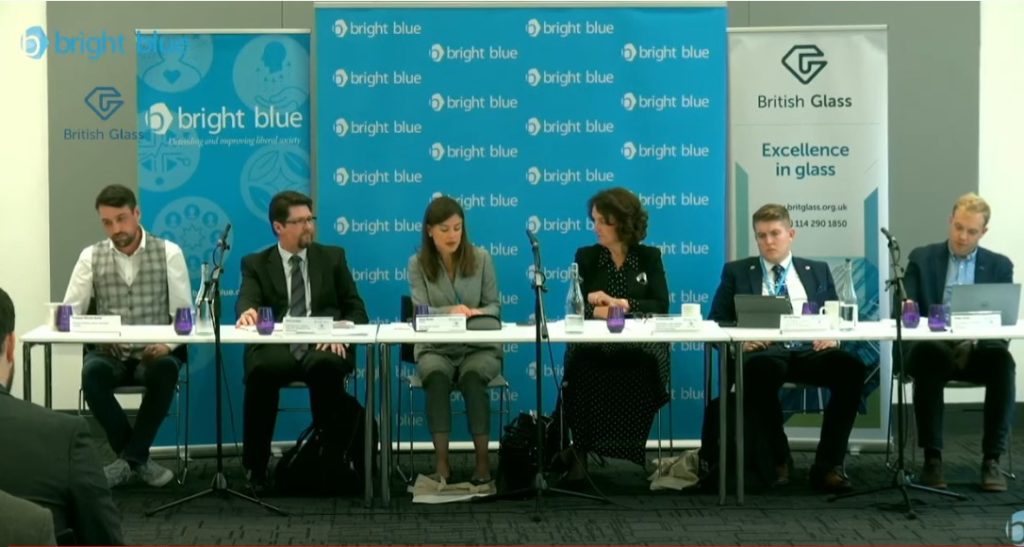
‘Terrific strides’
Speaking as a panelist, Mr Vanston gave credit to all the Conservative ministers involved with the Environment Bill and RWS, praising the work of “Michael Gove, Therese Coffey, George Eustice and Rebecca Pow; they’ve made terrific strides over the last few years and have given you, minister, a real springboard to jump from now.”
Mr Vanston continued: “The brilliance, luminescence of all of these reforms – we have to make sure that we don’t dissipate in the next six months by being drudged down with discussions and consultations which take us backwards. To keep the light shining brightly, the coherence of the timing of EPR, DRS and Consistency, needs to be completely joined up.”
‘Exciting times’
Mrs Churchill pointed out that she has only held the portfolio for two weeks. She said: “However its clear that in these first two weeks that these are exciting times at Defra. The Environment Bill stands on the cusp of agreement… it lays the foundations for our green recovery, restoring biodiversity and cutting carbon emissions of which waste plays such an important part if we’re going to achieve it.
The Environment Bill stands on the cusp of agreement
– Jo Churchill, recycling minister
“The Bill sets out a comprehensive package of measures to reduce waste and increase recycling, these are and should be a powerful aid to the waste industry in its effort to cut its environmental impact. Foremost amongst these will be the DRS or Deposit Return Scheme which will incentivise all of us to recycle more of the drinks containers that we buy and in so doing increase the quantity and quality of material recycled. It could also strike a blow against the menacing of littering we see around our streets and right across our countryside and highways.”
Consistency
Mrs Churchill also touched on the consistency proposals for local authorities. She said: “with every local council collecting food waste and plastics making it easier for people to recycle, and making it easier and more efficient for government and councils to work together to explain those benefits that recycling offers everybody and making things simpler is usually the key. This measure alone is expected to save more than one million tonnes of carbon from being released every year.”
And, she claimed that the cost of extended producer responsibility (EPR) will shift from the tax payer to industry. The minister said: “The Bill also introduces extended producer responsibility moving the cost of dealing with key areas of waste from the tax payer to people who make or import it, powerfully incentivising to cut both waste produced but making it easier to recycle.”
Open door
Mr Vanston spoke after the minister’s initial address and promised her that “she will love this industry”, praising the government for an open door policy during the consultations.
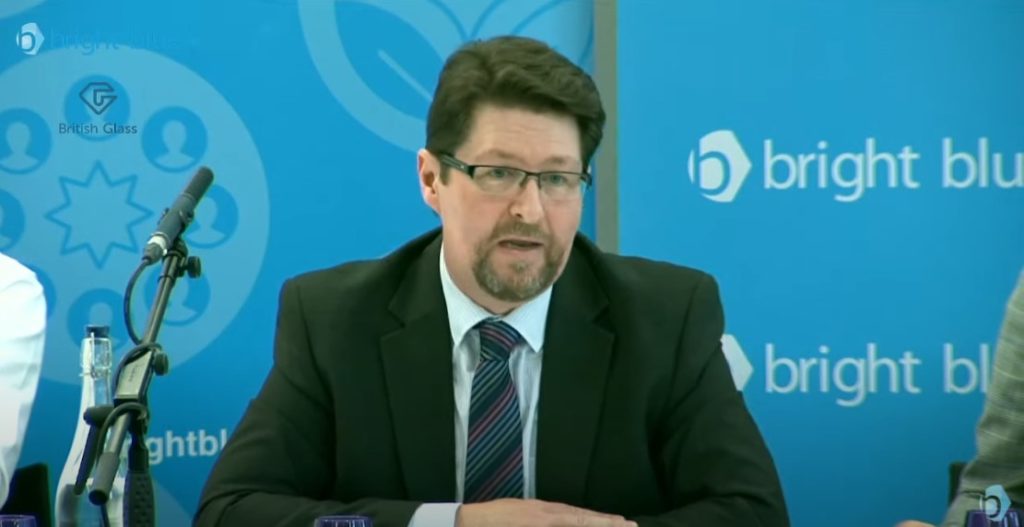
Turning to the consistency side of the strategy, Mr Vanston said: “Where we need a major push is on plastic films and flexibles, aluminium trays, foils and aerosols and also on cartons and our message is there: that government please keep up your ambition on those and the timescales on those. It’s the flipside of EPR where the money goes into the system but the value is the recycling rates and the materials that come out.”
He also declared: “I think the minister is right, we can’t cherry pick some of those reforms, we have to develop a single system for all of the packaging so that business, every business, every council, every citizen is absolutely clear what their responsibilities are going forward.”
British Glass
It was later in the session that the glass and aluminium sector incurred the strongest criticism from the minister. One of her fellow panelists, Phillip Fenton, lead packaging and recycling adviser for British Glass highlighted that glass is “one of the most sustainable materials on earth and is inert and non-toxic.”
On the deposit return scheme proposal, he said: “When it comes to the DRS, the glass industry does not believe it is the right solution for glass. We believe it will lead to a number of unintended consequences and we believe it will be detrimental to glass recycling rates.
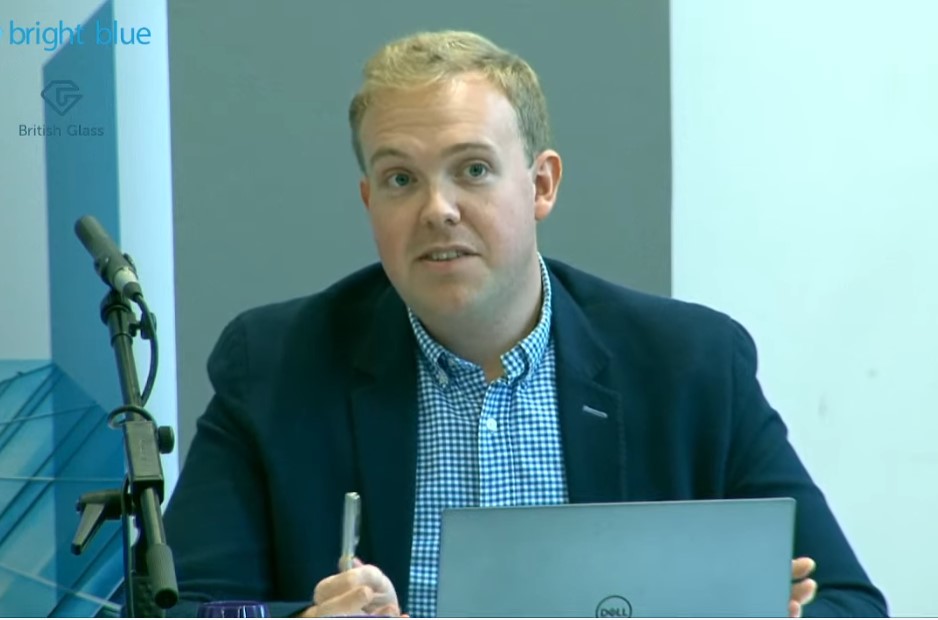
“Under the DRS proposals at the moment there will be no remelt or bottle-to-bottle closed recycling rate. Under the current PRN system we have that economic and regulatory incentive to ensure that that glass goes back into bottles and jars and that is unique to glass. Also under a DRS, glass is likely to be crushed, broken or compacted and that reduces the quality of the material which we can colour sort.”
He also warned that a DRS would lead to a reduction in the amount of glass available for recycling it will increase the carbon emissions of the sector and said that 76% of glass beverage packaging is already being recycled.”
Aluminium cans
Mr Fenton’s concerns were echoed by the first question from the audience which came from Tom Giddings, Tom Giddings, public affairs manager at Alupro which represents the aluminium can sector.
Mr Giddings claimed an aluminium can beverage recycling rate of 82% – something which would subsequently attract the wrath of recycling minister Jo Churchill.
Mr Giddings said: “I would agree with British Glass chat closed loop recycling is very important and when we think about DRS we want to make sure that any material we collect goes back into packaging. Particularly for aluminium this is very important it is the most valuable material in any scheme.

“To echo our point with our friends from British Glass, we need to avoid unintended consequences, particularly we need to avoid material switching so everyone can compete on a fair basis. If we have a flat deposit system of 20 pence, that could encourage switches to larger plastic containers from multi packs of glass and aluminium cans.
“You would have an accumulated inflated deposit on every multi pack which is the way most drinks are sold in the UK. So we are fully supportive of an all in DRS which does include glass, we do differ on that basis, but we do need to make sure any system we do put in has the right environmental outcomes without economic disaster.”
Red lines
Paul Vanston responded first and showed no sign of support for the Alupro view. He said: “I think that we as industry can talk ourselves out of well-designed systems because of differences in parts of the same value chain… If every part of the supply chain.., stick to their red lines we won’t get very far. So my message is actually not one for government, but one for the whole value chain, we may have to move to make sure that we get to the well-designed system but government, make sure you’re in the room to do that because we need a strong referee to say if you can’t agree, we’re going to do it anyway.”
Race
The quoting of recycling rates by the representatives of Alupro and British Glass was savaged by the recycling minister. Instead she suggested that the glass and aluminium sectors should not be aiming to win a race but rather help others with lower performances.
She said: “What are we trying to achieve – we’re trying to achieve boosting recycling rates. We’re trying to achieve is a circular economy. What I’ve actually heard is I’ve got 82% or I’ve got 76%, but if I’ve got a bottle with an aluminium cap and a glass bottom, I want somewhere to dump it. I don’t have my glass collected on the kerbside, that’s what the C in consistency means. I have two councils, both do different coloured bins, that’s what consistency means.
I mean how hard do you want to make it?
– Jo Churchill, recycling minister
“You all promote products with lots of interesting stuff, it’s largely legislated that you should put on these packets but actually where’s the simple infographic that says which thing goes where, we are a beautiful country, a diverse country with many languages spoken, why don’t we just do some pictures that stick on the side of your bin, I mean how hard do you want to make it? This isn’t a competition, this is a race, there is something very different in that because I think it was what the Brownlee brothers showed, in a race you look around and see who’s struggling, and you help take them across the line and make sure they get their medal too.”
The minister concluded: “So actually there are advantages here, we’ve got to have a grown up conversation but if we all have our own red lines and are stood there, we’re not going to find there is much room in the middle.”





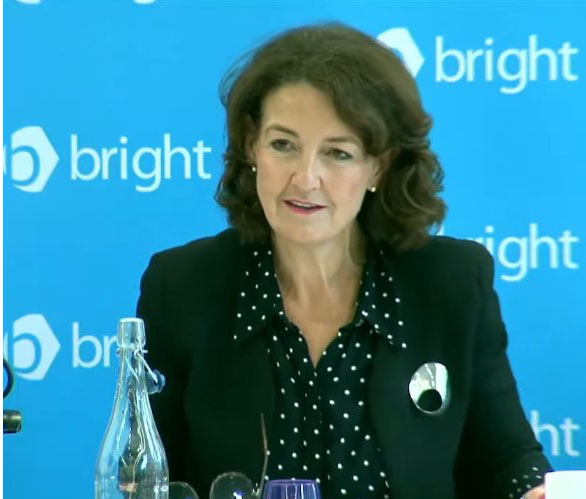
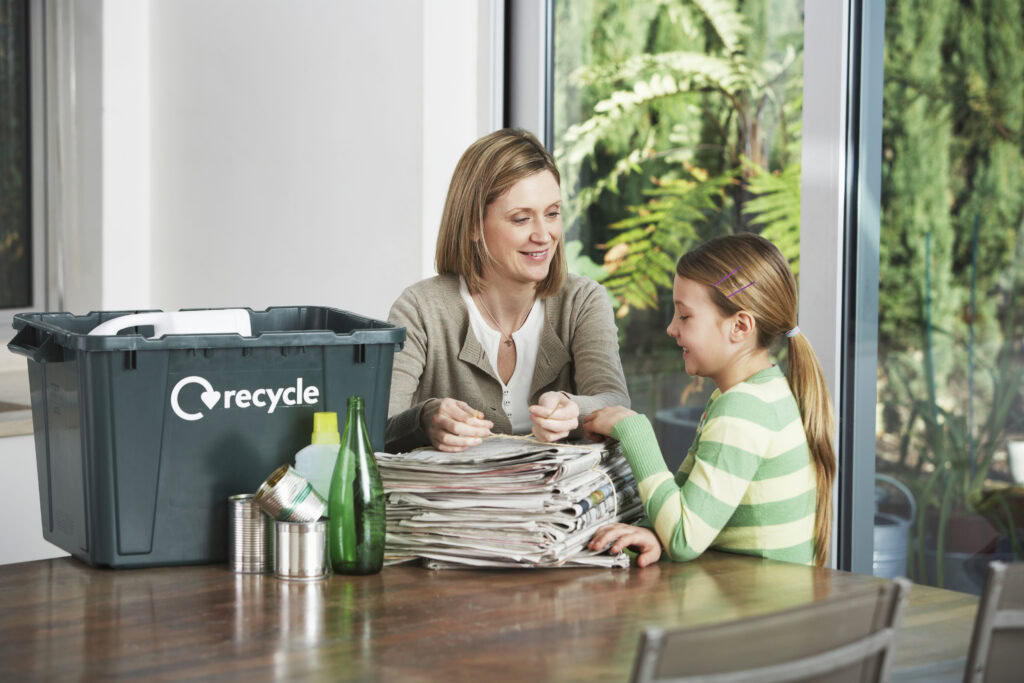
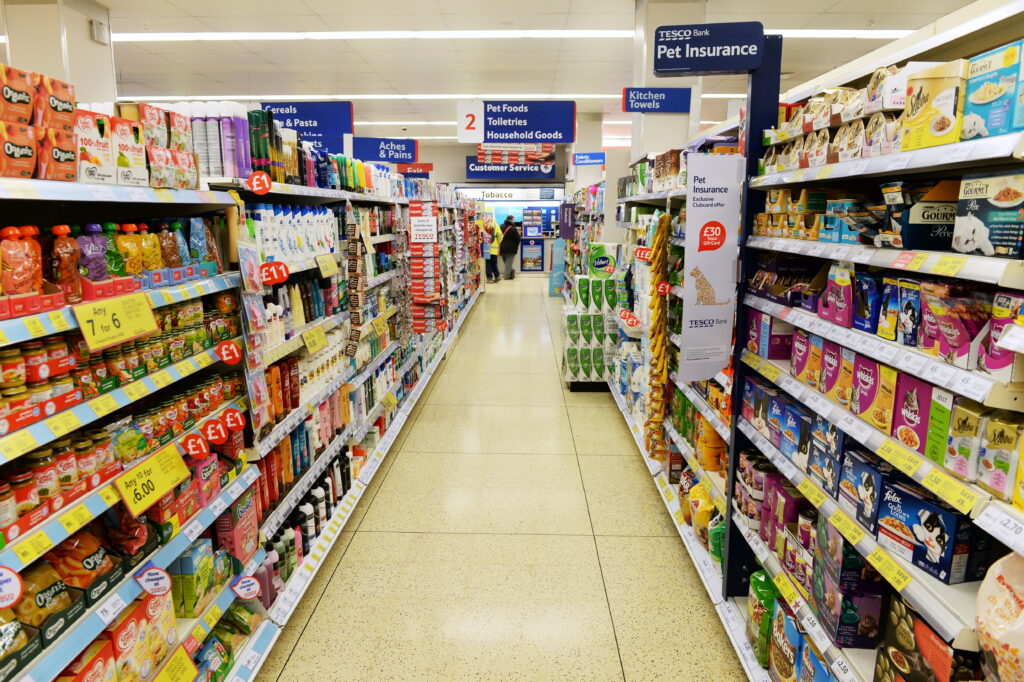
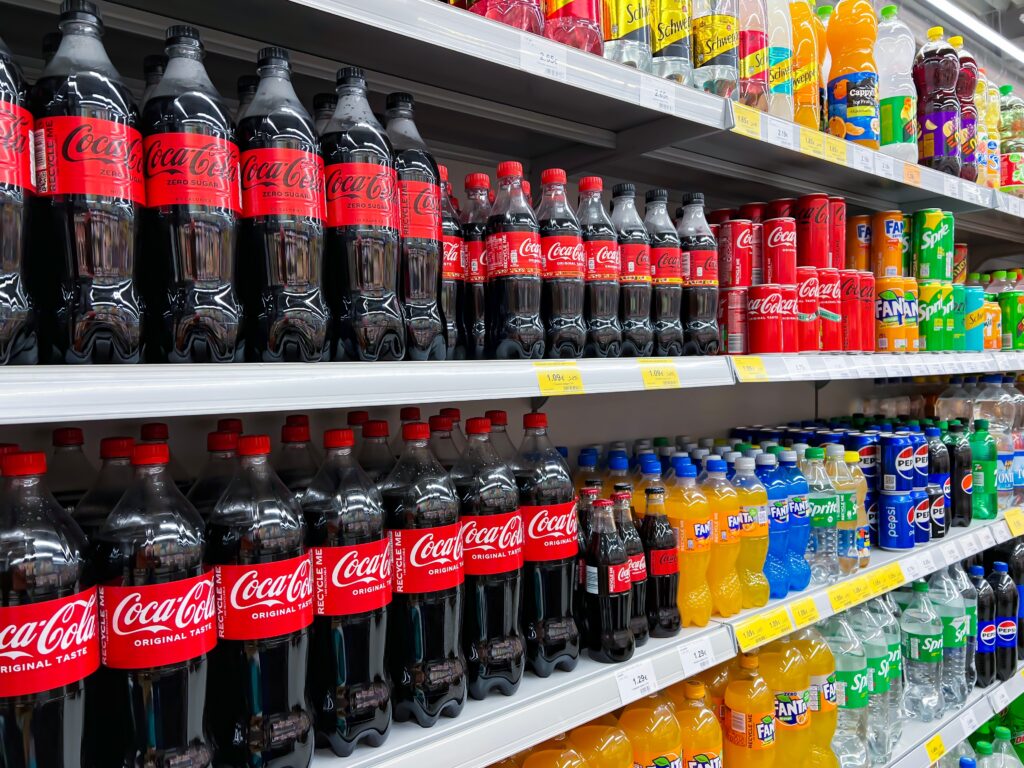
Subscribe for free